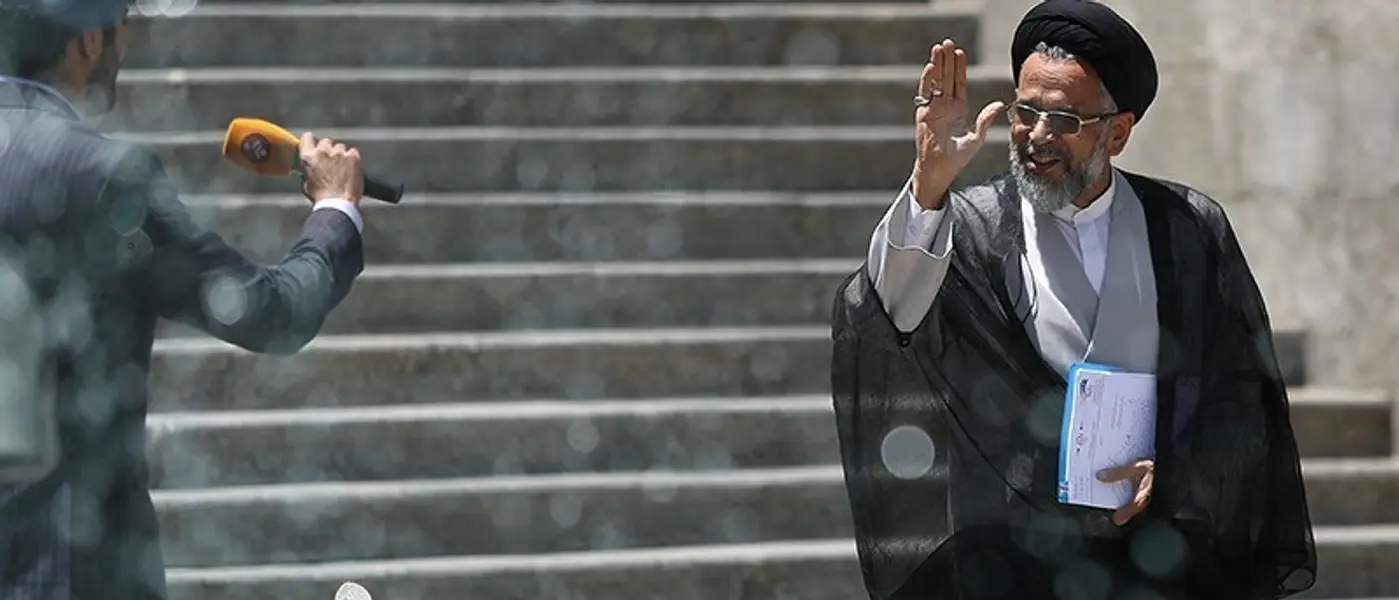iranintl – A former intelligence minister has revealed Iran’s strategy of pursuing and repatriating dissidents through elaborate operations.

“Our strategy was to bring anti-security elements back into the country, using intricate intelligence tactics, to the extent possible,” Mahmoud Alavi, a cleric who served as intelligence minister under President Hassan Rouhani, told the official new agency IRNA on Saturday.
Alavi mentioned the examples of Habib Asyud (also known as Habib Chaab) – an Iranian-Arab leading separatist, and Jamshid Sharmahd, a 68-year-old software developer and California resident, who was an anti-regime activist. He was abducted during a trip to the United Arab Emirates and now faces the death penalty in Iran. Asyud, who was a Swedish dual national, was put on trial in secrecy, like in most political cases, and was hanged in May 2023.
In addition to mentioning these abduction cases, the former intelligence minister also implicitly admitted of killing opponents in exile, such as another Iranian Arab separatist in Holland.

Alavi also divulged some information on how Sharmahd was abducted. From his brief remarks it can be surmised that the monarchist opposition activist was tricked into believing that he would be taken from the UAE to Pakistan.
“When he opened his eyes in [the Iranian port of] Chabahar, he realized that he was in the Islamic Republic, and the guys told him, ‘Welcome to the Islamic Republic, Mr. Sharmehd,'” Alavi described.
The abducted man was put on trial on charges of plotting terror attacks in Iran and given the death sentence. In 2023, as the Biden administration was negotiating a hostage release deal with Tehran, there were high hopes that Sharmahd would be one of the prisoners to be released. However, five other individuals who were US citizens were exchanged for $6 billion of Iran’s blocked funds, and he remains in Iran facing the death penalty.
Another famous dissident who was abducted and taken to Iran where he was hanged, was Ruhollah Zam, who lived in France and engaged in media work, exposing corruption among Iranian regime officials. He was lured to travel to Iraq in 2019, where Iranian security and intelligence networks have a strong presence. Upon his arrival he was abducted and taken across the border to Iran, where after a year he was hanged.
During his incarceration, he was interviewed on the state TV and calmly and courageously stood his ground. He is remembered by his famous line during the interview when in response to the government interviewer and referring to anti-regime protests, he said, “You call them riots, we call them protests.”
The timing of Alavi’s “interview” with IRNA could be related to the internal and external pressures the Iranian regime is faced with. The public bragging about abductions could be an attempt to intimidate opponents that the regime is strong and has a long arm to reach them.
It is noteworthy that a former minister from a relatively “pragmatic” administration spoke about the intelligence operations, and not one of the hardliners who currently control the parliament and the presidency.
President Hassan Rouhani was an advocate of negotiations with the West and his government was presented as a “reformist” administration.
However, intelligence, military and nuclear matters in Iran are controlled by the core of the regime, under the direct control of Supreme Leader Ali Khamenei’s office. Changes in presidential administrations and rotation of specific officials make little difference in security matters.
 Shabtabnews In this dark night, I have lost my way – Arise from a corner, oh you the star of guidance.
Shabtabnews In this dark night, I have lost my way – Arise from a corner, oh you the star of guidance.



